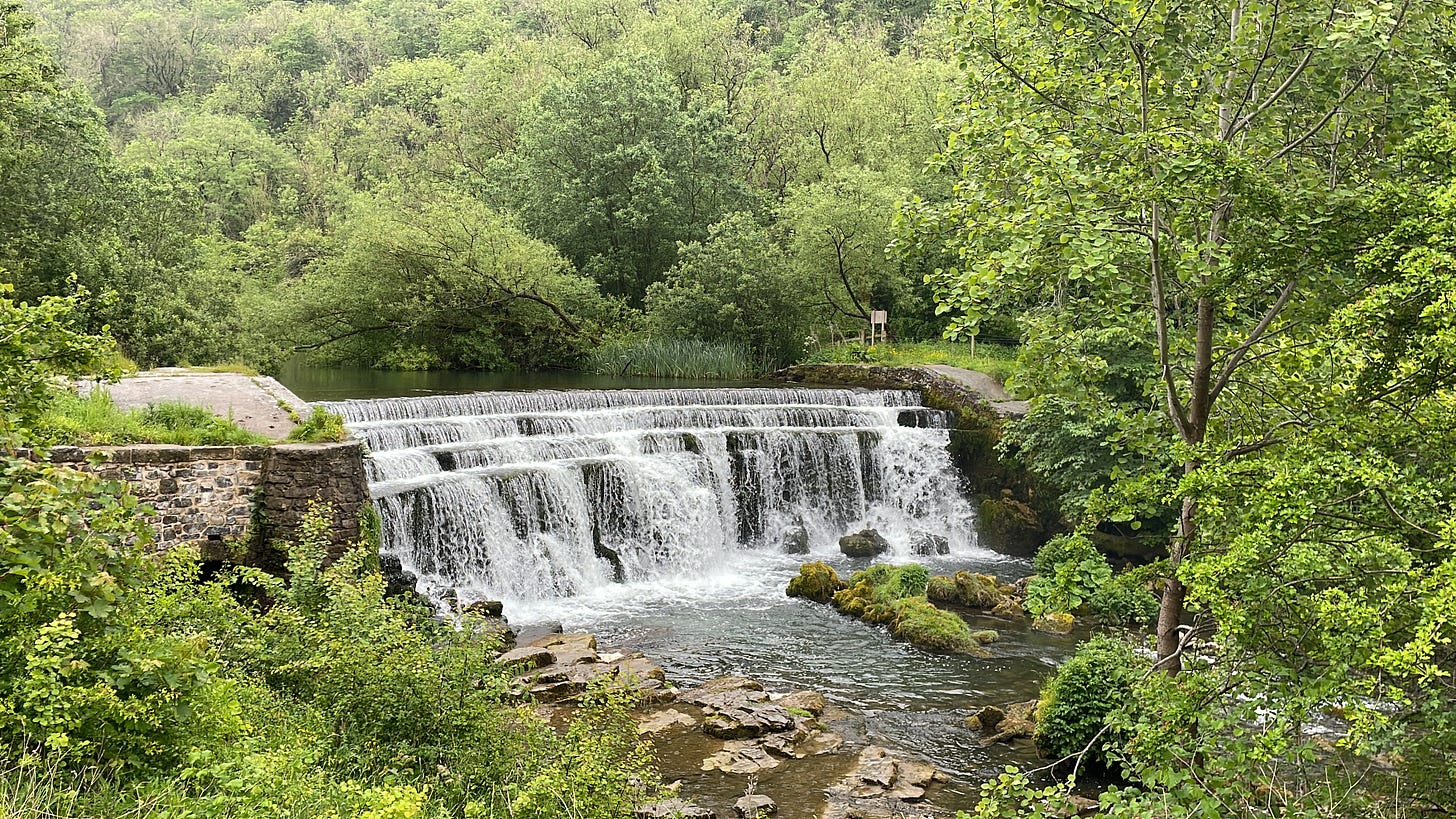Walking with your ears
Ditch the headphones and listen to the world for a while
Hello, hello. Today is Winnie the Pooh day – in honour of author AA Milne's birthday. So here’s a little quote from that wisest of bears:
“I always get to where I'm going by walking away from where I've been.”1
Walking
If you live in the northern hemisphere then this time of year can feel a bit… bleh. The colour has drained from everything and it’s cold, damp and slippery outside. As much as I love walking, on days like these I sometimes need to motivate myself by going in search of something specific – so for this edition I went on a sound stroll.
Sensory walks like this are fab opportunities to unplug your headphones, ditch your phone and listen to whatever’s going on around you. On my recent stroll, I walked along the Regent’s Canal in London, which delivered a delicious mix of sounds from birdsong in the hedges, to the chugga-chug-chug of a canal boat doing a 360-degree turn. Which was no mean feat given the narrow width of the canal.
The walk also helped me to notice the different types of sounds around us and how they might inspire our writing in different ways. So for your walk this time, I invite you to listen for these types of sounds and see if you can find at least one from each category:
Environment/nature sounds – for example, water gushing over rocks or down a drain, leaves scuffling in the breeze, trees creaking in the wind
Wildlife – birdsong, dogs barking, squirrels scuttling in trees, foxes rummaging and so on
Mechanical sounds – like road traffic, trains, sirens, machinery, or the clicking sound of someone tapping on their phone
Human-made sounds – like singing, whistling, music or chatting
I often record sounds on my phone, so if you find something intriguing, you might want to do the same so you have an audio prompt you can return to.
Hopefully this walk will help you discover unexpected sounds in places you know well or sounds that seem out of place for the setting. Please let me know what you find by adding a comment to this post.
Writing
This time, I invite you to try freewriting – a technique pioneered in 1973 by Peter Elbow, Emeritus Professor of English at the University of Massachusettes Amherst.
To do it, you set a timer – 10 minutes is enough – then write whatever comes to mind and keep going until the timer stops. There’s no right or wrong way to approach freewriting – you might even end up writing the same word or sentence over and over for 10 minutes, which is perfectly fine. But I find the easiest way to start is by choosing a word or phrase as a prompt to start me off. If I run out of words before the timer rings, I write the prompt down again and keep going.
It’s a great exercise for flexing your writing muscles and blowing away the cobwebs. Simply choose one of the sounds you noticed during your walk, set your timer and see where it takes you.
Happy walking and writing until next time,
Sarah
PS For more sound (and light) inspiration, watch Blessings, a short film by Andrew Hinton. It brings poet David White’s Blessings poems to life through a beautiful journey across the Irish landscape with music by Owen Ó Súilleabháin.
The quote is from the 2018 film, Disney’s Christopher Robin. I’m not 100% sure if it’s in the book, as I can’t find my copy to check – please let me know if you have the answer.


